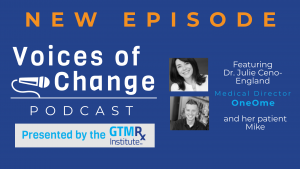Practice Transformation
Prescriptions for outpatient drugs should include diagnoses. That information should also be captured in claims data, write Christi A. Grimm and Julie K. Taitsman of the HHS Office of the Inspector General. “As medical care becomes more team based, physicians, pharmacists, patients, and caregivers need better information to collaborate to achieve better health outcomes.” It also allows pharmacists to apply their expertise. “Sometimes, pharmacists know what medications a patient actually takes better than the prescribing physicians.” Properly implemented, this could ultimately reduce the administrative burden. (STAT News)
Primary care practices quickly pivoted as the pandemic surged, but they will need more targeted support moving forward, according to a policy brief from Urban Institute. “In large part, PCPs’ response to COVID-19 was a bottom-up process, with PCP practices making mostly independent, rapid and varied decisions to fundamentally shift the way they deliver care,” the researchers wrote. “Better-targeted federal relief funds, help obtaining personal protective equipment and continued support for telemedicine should be top priorities to keep primary care providers financially solvent and open to their communities.” (FierceHealthcare; policy brief)
Evidence & Innovation
A recent Pharmacy Times article explores the role of pharmacogenomics in selecting appropriate therapy for the treatment of acute myeloid leukemia (AML). A patient’s specific treatment options may depend on the cytogenetic or molecular abnormality detected, the authors explain. “Pharmacogenomics can also be used to improve medication-related outcomes in all health care settings. Pharmacogenomic testing can reduce suboptimal clinical outcomes, decrease cost of treatment and treatment length, increase medication adherence and improve patient safety,” they conclude. (Pharmacy Times)
Engage specialty pharmacies to support patients with rare diseases, said panelists at Informa’s Hub and SPP Model Optimization 2021 meeting. Like patient advocates, pharmacists are key stakeholders who should be brought in from the beginning. In engaging patients, be sure to coordinate outreach efforts, counseled Esther Langer, PMP, MBA, of Apellis Pharmaceuticals. “[P]harmacists are talking to patients on a cadence, and your case manager may be talking to patients on a cadence, but you don’t want to overwhelm the patient with so many different outreaches. You have to think of the whole experience together as one workflow…” (Specialty Pharmacy Continuum)
Policy Solutions
The pharmaceutical industry is pressuring the US FDA to address the growing backlog of drug inspections, Politico reports. “I fully acknowledge the challenge of COVID-19 era inspections, but almost every other industry has found a way to continue operating and to function within these parameters of low social contact,” says Stephen Schondelmeyer of the University of Minnesota’s Center for Infectious Disease Research and Policy Resilient Drug Supply Project. “When you have bona fide, effective new therapies that aren’t getting to market that has an impact on patients.” (Politico)
The FDA recently released a three-pronged plan to modernize its to data. The Data Modernization Action Plan builds on the agency’s earlier technology modernization effort and has three key components: driver projects, consistent and repeatable data practices and fostering a talent network within the agency and with external partners. In an FDA blog post, Acting Commissioner Janet Woodcock and Acting Chief Information Officer Amy Abernethy wrote that “even small advances in our ability to gain useful insights from data can represent significant opportunities.” (MedTech Dive; Regulatory Focus; FDA blog post)
Note: sources that have an asterisk require login to view the article.
In Case You Missed It!
The GTMRx Best Practices and Innovative Solutions (BPIS) Subgroup of the Practice and Care Delivery Transformation Workgroupis working on a comprehensive medication management (CMM) FAQ tool for physicians. The group recently hosted several physician focus groups to inform their work—which will be a part of a larger physician stakeholder package.
The Green Center’s COVID-19 Primary Care survey is the only survey to start and track the impact of the pandemic on primary care practices. Survey data are regularly shared with federal and state agencies and major media outlets. This week’s survey focuses on the anniversary of COVID-19 and takes less than 5 minutes to complete. Responses are due by TUESDAY, March 16th, 11:59 PM PST.
Employers manage the health benefits for 49% of this country’s total population. Because employers sign the checks, they have much to gain from optimizing the medications involved in 80% of all medical treatments.
The problem is not solely the inability to keep people on medications. It’s also a failure to optimize medication use. This requires going upstream in the medication use process and first ensuring every medication is appropriate, effective, safe and that the patient is willing and able to take it as prescribed. Read more in our blog from Sandra Morris.
Did you know a simple test can reveal how someone will respond to their medications? This crucial bit of information can save millions of dollars across a patient population.
The Teachers’ Retirement System of the State of Kentucky (TRS) has successfully implemented a program that optimizes patient’s medications—saving lives and money! The TRS model can be replicated nationally, and TRS has seen tremendous interest in doing just that. Read more in our blog from Jane Cheshire Gilbert.
GTMRx responds to OPM’s request for comments.
The U.S. Office of Personnel Management released an request for information seeking guidance on pharmacy benefits, including medication management and PBMs. The GTMRx Employer Toolkit Taskforce, led by our employer coalition CEOs, sent in their response, urging OPM to implement comprehensive medication management in the Federal Employee Health Benefits Program.
If you are a member of the Institute and would like a copy of the letter, please contact Izzy Serji, GTMRx operations manager (e: [email protected]).
The AMA and ASHP (GTMRx founding funder) are committed to exploring the potential of pharmacogenomics-based selection, dosing and monitoring of medications to improve health outcomes. To further clinicians’ understanding of this emerging area of medicine, the AMA and ASHP are developing an informative series of virtually convened and facilitated webinars to evaluate the evidence base, identify and promote current best practices and guidance on the clinical application of pharmacogenomics and understand the health equity implications of adoption.
The webinars are free and will run March 2, March 11 and March 18. Register here.
Developed by the Best Practices and Innovative Solutions Subgroup of the Practice and Care Delivery Transformation Workgroup, learn how integrated health care organizations and health plans, such as Minnesota Health Fairview, have implemented successful programs designed to optimize medication use. This case offers insight into the programs’ impact on outcomes, clinician satisfaction, cost savings and patient satisfaction. Also included are details about program size and success factors. Read more.
Listen here.
Hosted by the GTMRx Institute’s executive director and co-founder, Katherine H. Capps, Voices of Change features leaders who have knowledge, experience and ideas to solve this urgent need to get the medications right. Did you miss the most recent episode?
AmazonSmile is an easy way for 0.5% of your qualified purchases go to the GTMRx Foundation at no cost to you. And signing up is simple—go to smile.amazon.com and select “Get the Medications Right Foundation” as your charity of choice. If you prefer to directly donate instead, you can do so here.
Adding the foundation on AmazonSmile will help us continue to provide no cost educational webinars, issue briefs, weekly news briefs and promote the need for transformation of our current system of medication use through social media campaigns.





